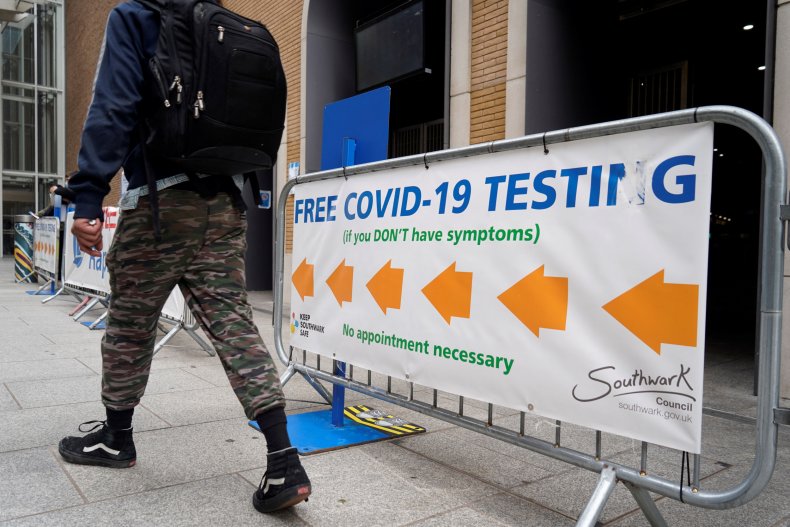Why Is COVID-19 Declining in UK? All the Theories Behind the Surprising Fall
The United Kingdom has been reporting a decline in daily COVID-19 cases for more than a week. But experts are not sure why or if there even is less of the deadly virus circulating in Great Britain.
According to UK government data, new daily cases had been up to almost 55,000 on July 17, before abruptly dropping back below 25,000 as of August 1. These figures are surprising, especially given the recent easing on lockdown restrictions as of July 19.
One theory? It could be Euro2020 and the way the sports fans have influenced the spread of infection.
The World Health Organization's technical lead, Maria Van Kerkhove, said England's participation in the Euro2020 football final on July 11 was likely a key driver of transmission, calling it "devastating" to watch in a tweet.
Am I supposed to be enjoying watching transmission happening in front of my eyes?
— Maria Van Kerkhove (@mvankerkhove) July 11, 2021
The #COVID19 pandemic is not taking a break tonight... #SARSCoV2 #DeltaVariant will take advantage of unvaccinated people, in crowded settings, unmasked, screaming/shouting/singing. Devastating.
The 60,000 fans who gathered at Wembley Stadium were all vaccinated, but no such requirements were placed on fans gathered together in places like pubs and friends' houses across the nation.
Dr. John Edmunds, a professor of epidemiology at the London School of Hygiene & Tropical Medicine, supports the theory that large numbers of fans gathering to watch the final on July 11 would explain a large jump in mid-July cases. And then a subsequent widespread period of self-isolation observed by fans finding out they had been exposed to COVID-19 during the match would explain a large drop in new cases.
"This bout of self-isolation occurred across the country at the same time, and it looks like it reduced cases," Edmunds said. He also credited summer break with helping to keep numbers down.
"Pupils are no longer bringing home viruses after picking them up in class. This is now probably helping to hold cases down, and may well do so over the summer," he added.
Some scientists are wondering if the UK might be approaching "herd immunity" or endemic levels. And some scientists think there's just less testing going on.
The Delta variant has been hitting younger populations especially hard—the same younger populations that go to school and have been required to get tested regularly for those schools. Now that most students are on summer break, fewer young people taking tests and registering their positive results.
"Younger people are less likely to test, [when not required] especially if it means quarantining, staying at home, so many will probably ignore a sniffle, or a cough, or a cold," said Ravindra Gupta, a professor of clinical microbiology at Cambridge's Institute for Therapeutic Immunology and Infectious Diseases.
Another popular explanation for the sudden, unexpected decline in cases is that it's not really happening. It may simply be a defect or a delay in the way we measure the ebb and flow of the disease.
The dramatic drop reported in new daily cases in the UK has not been backed up across the board by other important ways of tracking the disease. According to reporting by the BBC, out of several key ways the UK tracks COVID-19, such as randomly selected test subject data from Office for National Statistics, self-reported data from the Covid study app, hospital statistics, or Testing by Imperial College London (which hadn't reported as of Friday), none of the figures agree.
One thing many scientists seem to agree on is the need for caution in interpreting the surprising results.
"The drop is much faster than we've ever seen in previous waves," said Professor Tim Spector, from King's College London. "Even after full national lockdowns, leaving the accuracy of the official tally in doubt."
Newsweek reached out to the UK Department of Health for comment.


